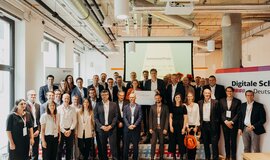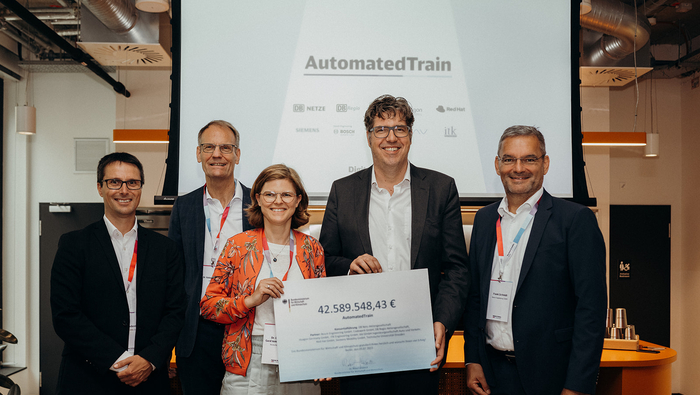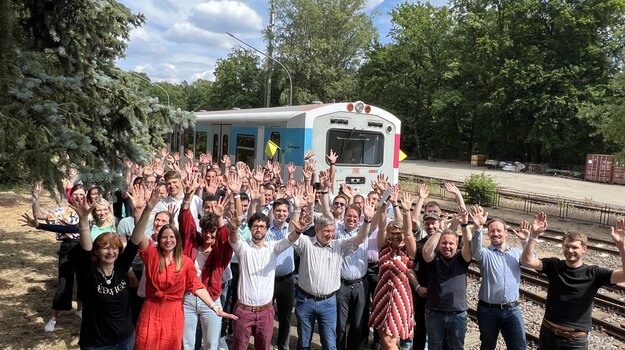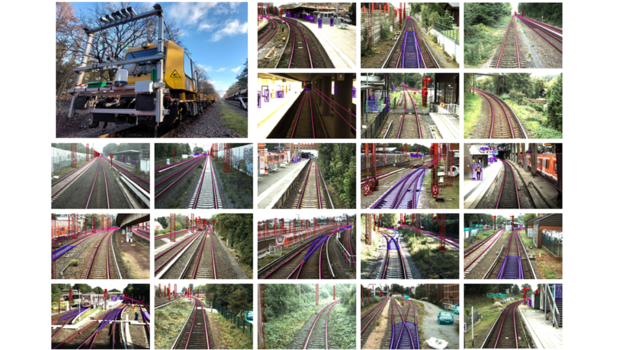
Digitale Schiene Deutschland and industry receive funding to test fully automated train operation
The research and development project “AutomatedTrain” aims to enable a more flexible use of trains through driverless, fully automated dispatching and parking functionality. To achieve this goal, two regional trains will be automated equipped with state-of-the art sensor technology. German government funds the project with EUR 42.6 million.
As part of the Digitale Schiene Deutschland sector initiative, Deutsche Bahn (DB) is driving forward digital rail operations together with ten partners. The research and development project "AutomatedTrain" will develop and test fully automated train dispatch and parking functions over the next three years. Smart sensor technology will allow two trains on the project to detect their surroundings and react independently to obstacles, similarly to the way autonomous road vehicles work. The German Federal Ministry for Economic Affairs and Climate Action is funding the project with EUR 42.6 million. Parliamentary State Secretary Michael Kellner formally awarded the funding to the project in Berlin on 5th July 2023. “AutomatedTrain” uses the results from previous projects like “Sensors4Rail” and “Digitale S-Bahn Hamburg”.
Was haben wir vor?
What have we planned for the coming years?
By 2026, two prototypes will be developed: One train from Siemens Mobility and one train from the Stuttgart S-Bahn. The Mireo Smart Train from Siemens Mobility will travel driverless and fully automated from the siding area to the first station. The train will brake automatically when obstacles are detected. In addition, fully automated train start-up and shutdown will be implemented and tested on this train. The development will be based on ETCS, which makes this project truly unique. Among other things, the second train will collect data for obstacle detection in an operational environment. Both trains will be equipped with the same sensor hardware but different software solutions. This enables the comparison of the software solutions to the recorded sensor data, especially the software's reactions to specific incidents.
In addition to the two prototypes on the train, in the AutomatedTrain project we are devoting ourselves to the functionally secure and high-performance train-side computer platform and diagnostics required for fully automated train travel. Requirements are being developed for this purpose. In addition, the diagnosis is being implemented as a prototype for an environment recognition system.
Nine companies from different sectors and one university are working together on the project: DB Netz AG, Bosch Engineering GmbH, Codewerk GmbH, DB Regio AG, duagon Germany GmbH, IAV GmbH, ITK Engineering GmbH, Red Hat GmbH, Siemens Mobility GmbH and the Technical University of Dresden. The results of the project will be presented at InnoTrans – the international trade fair for railway and transport technology – in 2026. In addition to federal funding, the project is co-financed by EU funds (European Build-up and Resilience Facility).
Digitale Schiene Deutschland and its partners are motivated to start this exciting project, which aims at future-oriented parameters such as demographic resilience, decarbonization and flexibility through the digitalization of rail.
Quotes from project partners, politicians and the board of directors:
Michael Kellner, Parliamentary State Secretary at the German Federal Ministry for Economic Affairs and Climate Action:
"The AutomatedTrain project will demonstrate the technical feasibility of fully automated train operation in an open railway system for the first time. The purpose of the partnership between the railway industry and Deutsche Bahn AG is to define a modular and open system architecture for fully automated driving. This will be one more important step toward fully automatic train operation in Germany, as an industrial and research hub."
Dr Daniela Gerd tom Markotten, DB Board Member for Digitalization and Technology:
"We can play an important role in shifting more traffic to climate-friendly rail with innovative technology and state-of-the-art sensor systems. Fully automated, driverless train operation will allow us to run our trains more frequently and with more flexibility in the future, which will mean more appealing service for our passengers."
Andre Rodenbeck, CEO of Rail Infrastructure at Siemens Mobility:
"This is the first time that fully automatic, driverless train operation based on ETCS is being tested in regional transport in Germany. That's why we are proud to be part of the AutomatedTrain research and development project. We are equipping one of our Mireo Smart regional trains with the latest GoA4 technology for train preparation and provisioning. Our involvement in this project is the continuation of our research and development activities on driverless trains and obstacle detection in rail transport. We are thankful that the Federal Ministry for Economic Affairs and Climate Action has chosen to support the project."
Dr Ing Frank Schmidt, Member of the Board of Management of Bosch Engineering GmbH:
"Fully automatic train operation has enormous potential for rail transport. We are contributing our expertise in sensor technology and environment detection. The aim is to reliably pinpoint the exact location of trains down to the specific track and enable automated start-up and departure. For this to happen, the train needs to detect the track and potential obstacles that might be in front of it."


